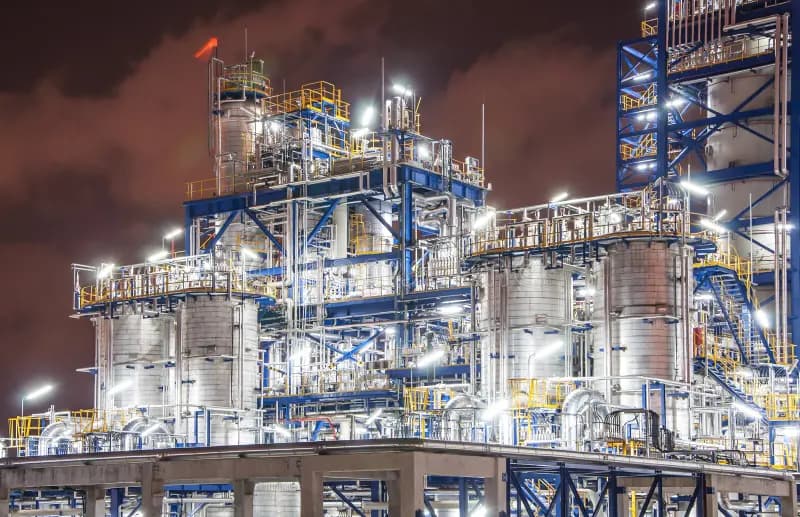A sneak preview of the AI Pitch Competition: what Exergy has in store for the world
Eleven ambitious AI startups have been selected to compete in the AI Pitch Competition. Ahead of the finals, IO portrays all the participants. Today: EXERGY.
Published on October 15, 2024

Bart, co-founder of Media52 and Professor of Journalism oversees IO+, events, and Laio. A journalist at heart, he keeps writing as many stories as possible.
Exergy is transforming the chemical industry by combining the power of artificial intelligence to optimize processes, improve efficiency, and reduce environmental impact. Its innovative solutions enable chemical companies to break free from outdated, siloed software systems and make real-time data-driven decisions, unlocking new growth and sustainability opportunities. Exergy bridges the gap between legacy operations and future technologies, providing tools that empower engineers and managers to visualize, simulate, and optimize complex processes like never before. Jose Trigueros, co-founder, answers our questions.

"Our solution is built on a hybrid modeling framework, combining AI-driven machine learning algorithms (such as neural networks and PCA) with traditional chemical engineering models like thermodynamics and chemical kinetics. This integration allows for real-time decision-making and process optimization, going beyond the capabilities of traditional software. Unlike existing systems, our AI continuously learns from live data streams, ensuring greater accuracy and adaptability in predicting outcomes, optimizing resource use, and minimizing downtime."
"Our AI solution is highly scalable due to its cloud-based architecture and modular design, making it adaptable across different chemical processes and plant sizes. It integrates seamlessly with existing IoT systems for real-time data acquisition. The primary challenges for scaling globally include navigating regional data privacy regulations (e.g., GDPR) and adapting the software to meet specific local operational standards. By partnering with local organizations and adopting a flexible, modular system, we plan to mitigate these hurdles and expand rapidly."
"We address ethical concerns by ensuring algorithm transparency and actively auditing our models to avoid biases in decision-making. Our system is built on explainable AI principles, ensuring that users can understand the rationale behind AI-driven recommendations. For example, in optimizing plant operations, we balance environmental impact and operational costs to avoid disproportionately benefiting one area at the expense of sustainability. Regular bias testing and stakeholder input are crucial to maintaining fairness and transparency."
"Our AI solution helps chemical companies significantly reduce their environmental footprint by optimizing energy usage and minimizing waste, contributing to global sustainability goals. While automation may impact certain jobs, our goal is to augment human decision-making rather than replace it. We foresee potential challenges related to job displacement and are preparing to offer training and education programs to help workers transition into roles that involve more human-AI collaboration."
"The biggest challenge we faced was convincing a traditionally conservative and risk-averse industry to adopt AI-driven solutions. We overcame this through a successful proof of concept, where we helped a chemical plant save €50,000 per year by optimizing their batch process using our software. Demonstrating real value through pilot projects allowed us to build trust and gain traction with early adopters. The evolving AI landscape has driven us to focus on regulatory compliance and explainable AI, aligning with chemical manufacturers' needs."
"We are preparing for AI regulations like GDPR and the EU AI Act by embedding privacy-by-design principles and ensuring our models maintain data anonymity and traceability. Our development process is heavily influenced by these regulations, pushing us to design compliant and flexible systems. This regulatory focus ensures that our technology can be safely deployed across multiple regions without legal complications, enhancing customer trust."
"Over the next 5 to 10 years, we aim to evolve our platform into a global AI-driven standard for optimizing chemical processes, from energy use to sustainability compliance. We foresee our solution incorporating more advanced AI technologies and expanding beyond the chemical industry into pharmaceuticals, biotechnology, and other sectors. Our vision is to lead the industry in AI-driven operational efficiency, enabling companies to meet their net-zero emissions targets while enhancing competitiveness."
"We will win this competition because our solution addresses an urgent need in the chemical industry: the need for real-time, data-driven process optimization. Our hybrid model has already proven its value, delivering significant cost savings and improving sustainability outcomes. With industry partnerships, a clear path to market, and a focus on regulatory compliance, we are well-positioned to scale and disrupt the status quo."
External Content
This content is from spotify. To protect your privacy, it'ts not loaded until you accept.
